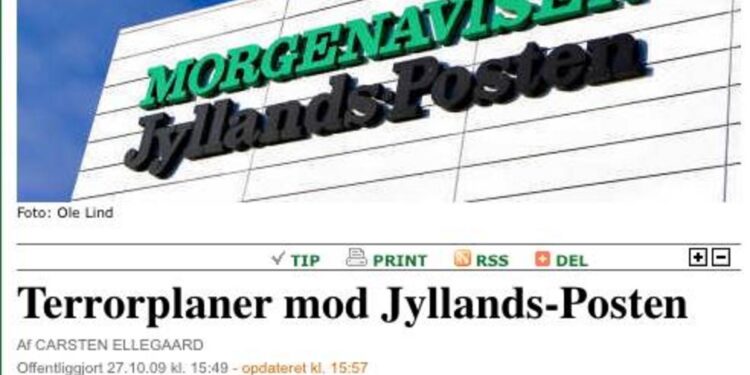In September 2005, the Danish newspaper Jyllands-Posten published a series of 12 editorial cartoons depicting the Islamic prophet Muhammad. This act sparked a global controversy that highlighted tensions between freedom of expression and religious sensitivities.
The cartoons were commissioned by the newspaper’s cultural editor, Flemming Rose, who wanted to contribute to the debate about criticism of Islam and self-censorship. Some of the cartoons portrayed Muhammad in ways that many Muslims found offensive, including one depicting the prophet with a bomb in his turban.
Initially, the publication drew little attention. However, as word spread, particularly after a group of Danish imams traveled to the Middle East to raise awareness about the cartoons, protests began to erupt across the Muslim world. The controversy escalated dramatically in early 2006.
Demonstrations against the cartoons occurred in numerous countries, some turning violent. Embassies were attacked, Danish products boycotted, and dozens of people died in riots. The controversy became a major international incident, straining diplomatic relations between Denmark and several Muslim-majority nations.
The newspaper and the Danish government defended the publication on the grounds of freedom of speech, refusing calls to apologize or censor the cartoons. This stance was supported by many Western governments and media outlets, who reprinted the cartoons in solidarity.
However, many Muslims viewed the cartoons as a deliberate provocation and an insult to their faith. Islamic tradition generally prohibits visual depictions of Muhammad, and many found the cartoons’ content deeply offensive.
The controversy sparked intense debate about the limits of free speech, religious tolerance, and the challenges of multiculturalism in an increasingly globalized world. It raised questions about the responsibility of the media when dealing with sensitive religious issues and the balance between respecting religious beliefs and protecting freedom of expression.
The Jyllands-Posten Muhammad cartoons controversy remains a significant event in recent history, illustrating the complex interplay between different cultural values and the potential for local actions to have global repercussions in the modern, interconnected world.
newshub



Recent Comments